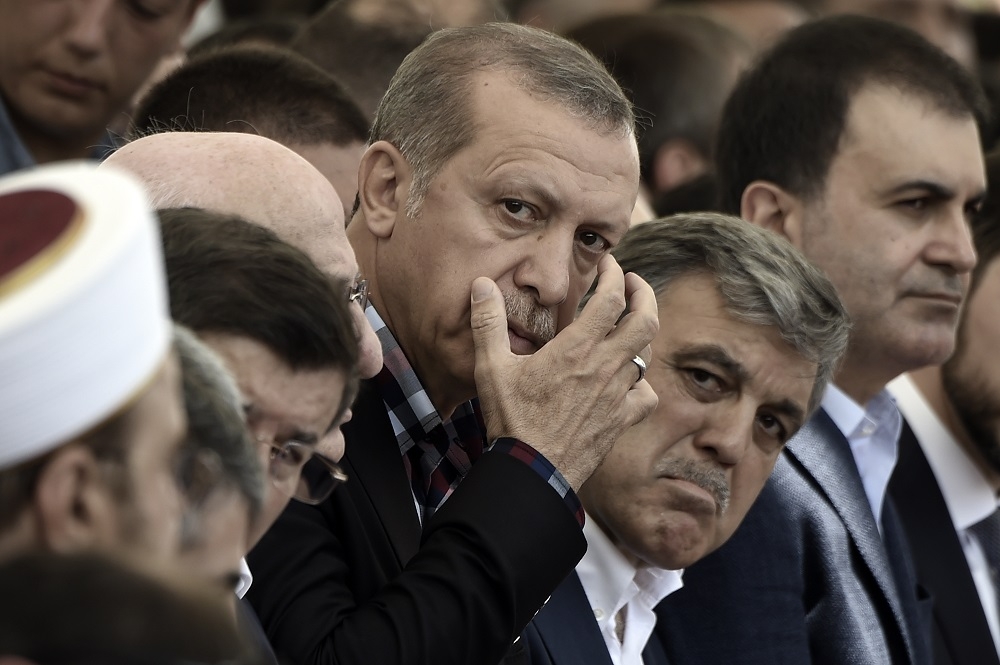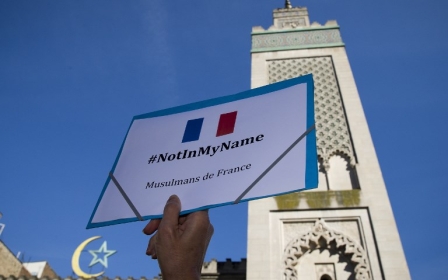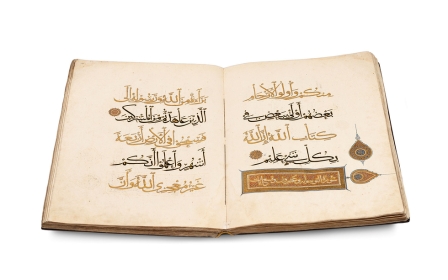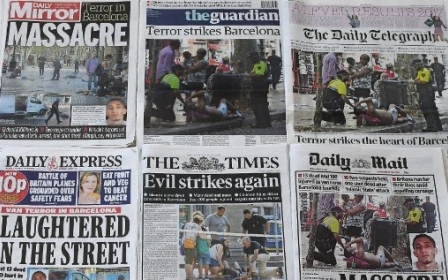Erdogan slams 'vile' French critics calling for Quran change

Turkey's president on Tuesday hit out at the “vile” French critics behind a proposal to change parts of the Quran, saying they “know nothing” about the Muslim holy book.
Recep Tayyip Erdogan accused the 300 French authors and politicians behind the proposal, which called for removing passages of the Quran they blamed for violence, of double standards in relation to other religious texts.
"Who are you to attack our scriptures? We know how vile you are," Erdogan said.
“Have they ever read their books, the Bible? Or the Torah?" Erdogan asked, referring to the Christian and Jewish holy books, adding: "If they had read them, they probably would want to ban the Bible."
Erdogan’s intervention followed weeks of pushback against the manifesto, backed by former president Nikolas Sarkozy and other senior French politicians, which called for the removal of verses it claimed encouraged “murder and punishment of Jews, Christians and disbelievers.”
The proposal, published in April, linked the verses to rising anti-Semitism in France and a reduction in the number of Jews living in the Paris area.
In response, 30 French imams published a letter in the French newspaper Le Monde denouncing anti-Semitism and expressing their sympathy for any victims of it.
They also denied the Quran could be used to justify violence, quoting a famous passage equating murder to killing the whole of humanity.
"Some have already seen (in this manifesto) a long-awaited opportunity to incriminate an entire religion. They no longer hesitate to publicly propagate, including in the media, that the Quran itself calls for murder. This pernicious idea is incredibly violent,” the imams wrote.
Despite being a signatory of the manifesto, even the chief rabbi of France, Haim Korsia, expressed reservations about the text:
“When someone proposes a text, there are always things that don’t really suit you. I had winced regarding two principles: the first, indeed, a sort of comparison of the inherent risks of being Jewish to the [lesser, the manifesto claims] inherent risks of being Muslim. Perhaps by comparing to the rest of the population, it would have sounded coherent to me…
"The second thing is that I thought it was inconceivable to demand that Muslims transform the Quran. I pushed for the manifesto to speak of contextualisation and interpretation, instead of repealing such and such verse.”
New MEE newsletter: Jerusalem Dispatch
Sign up to get the latest insights and analysis on Israel-Palestine, alongside Turkey Unpacked and other MEE newsletters
Middle East Eye delivers independent and unrivalled coverage and analysis of the Middle East, North Africa and beyond. To learn more about republishing this content and the associated fees, please fill out this form. More about MEE can be found here.




